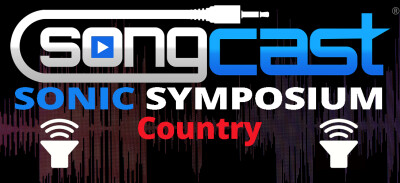As an indie artist, you’re likely busy planning your spring tour or writing new songs. Filing your taxes might not be at the top of your priority list, but it’s important that you get organized and file before the deadline. The IRS will begin accepting e-file and Free File returns on Jan. 17, 2012.
your taxes might not be at the top of your priority list, but it’s important that you get organized and file before the deadline. The IRS will begin accepting e-file and Free File returns on Jan. 17, 2012.
If you’re considering hiring an accountant or tax professional to handle your taxes, try to find someone that specializes in services for music and entertainment clients, so they fully understand the business of being a musician and so that you get the most out of working with them.
If you do your own taxes, you have more than enough time to get organized before the deadline. And this year, you have to extra days: the IRS announced that taxpayers have until April 17th to file their tax returns.
Wondering what you can deduct and what documentation you’ll need? Here’s a brief list of deductions that will potentially lower your taxes:
- Travel: If you go on tour or play a show that requires a hotel stay or airfare, you can deduct it. Deductible items include: hotels, airfare, phone calls home, rehearsal space and anything else related to your performance. Remember to keep documentation like receipts and tour schedules.
- Meals: If you have a business related dinner with your manager or lunch with a potential band mate, those meals are deductible at 50% the expense. Any expenses incurred that are associated with the business of being a musician can be deducted at 50%. Remember to keep documentation like receipts and business cards of the people you met with.
- Equipment: Any equipment you purchase for shows or rehearsals can be deducted. Guitars, strings, picks, speakers, cables, etc, can all be deducted. Higher ticket items have a depreciation deduction (usually items over $500). Remember to keep receipts for all business related purchases.
- Studio: If you have a rehearsal space or office that you use exclusively for your business, you might be able to take it as a deduction.
- Other: There are other deductions that can be filed under research (industry magazine subscriptions, CDs, and concert tickets) marketing (website costs, mailing list cost, etc), and wardrobe (if you buy clothing exclusively to wear at performances).
Before you file, be sure to check out IRS.gov, as tax codes change often.
Have questions? The IRS is becoming more tech savvy: they announced a number of improvements to help taxpayers, including new navigation features and helpful information on IRS.gov and a new pilot to allow taxpayers to use interactive video to get help with tax issues. And they encourage taxpayers to e-file as it is the best way to ensure accurate tax returns and get faster refunds.
Tell us what you think! Are you prepared for the impending tax season?
Up next: The January songwriting challenge!
The SongCast Crew











































Comments
No comment